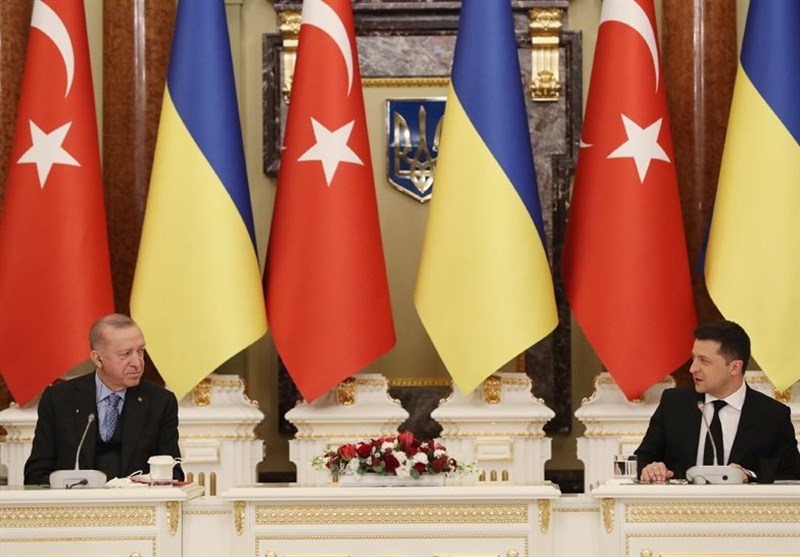Siamak Kakai, in an interview with the website of the Strategic Council on Foreign Relations, said: Erdogan suggested that Turkey could host a summit at the leaders, or at the technical, level between Russia and Ukraine to reduce tensions between the two sides.
Asked what role Turkey has to play in Anatolia and the Black Sea region that makes it willing to be an active mediator in this field, he said: One of the important goals that can be discussed in this regard is the geopolitical position of Turkey as a two-dimensional actor. This means that Turkey is a member of NATO; an organization that Russia considers as interferer with regard to the Ukraine issue and encouraging it to escalate tensions. Another issue is that Ankara has very good relations with both Kiev and Moscow. That is why Erdogan has found himself in a position to play a mediating role.
According to the expert, this is while the warm welcome of this mediation has not been seen either by the West or by Russia; but meanwhile they are not that much reluctant for such consultations.
Referring to Turkey’s somehow strategic relationship with Ukraine, Kakai said that even this type of Ankara-Kiev relationship has been criticized by Russia. He stressed: During the sale of Turkish drones to Ukraine, we saw that this issue turned into a dispute between Putin and Erdogan. Putin even announced that Turkey intended to disrupt peace agreements in eastern Ukraine.
Emphasizing that Turkey has good economic relations with Ukraine and that the trade volume between the two countries has increased in recent years, the expert on Turkey affairs said: The trade volume reached seven and a half billion dollars in 2021 and the two sides are discussing to increase the figure to 10 billion dollars.
He also said that Turkey is one of the most attractive places for Ukrainian tourists and last year about 2 million Ukrainian tourists visited Turkey; therefore, from an economic point of view, Turkey does not want a war between its two friendly countries at all.
Noting that Ankara had never supported Russian action since 2014, during tensions between Kiev and Moscow and Russia’s invasion of Crimea, Kakai said: In this crisis, Ankara has always been critical of Russia’s approach.
He continued, of course despite Turkey’s support for Ukraine’s position, it is opposed to the European sanctions plan against Russia.
Referring to the relatively strategic relationship between Turkey and Russia, the expert explained: In recent years, with the sale of Russian S400 systems to Turkey, those relations have expanded to a higher level and have deepened, to the point that has made the US and NATO upset with Ankara.
He continued: In this regard, even NATO considered the Moscow-Ankara proximity, especially in terms of military and missile cooperation, contrary to the goals of that organization; but Turkey has maintained strong ties with Russia.
Kakai believes that given the nature of Turkey’s relationship with Russia and Ukraine, which are completely different from each other, it was predictable that Ankara would enter into the field of mediation between Kiev and Moscow.
He stressed: In this regard, a structural goal of Turkey is to be able to show its role and importance of its role-playing to NATO through an intermediate policy, and to be able to find a middle way to continue relations with Russia.
The expert on Turkey affairs continued: But at the same time, because Russia’s policy towards Ukraine can be strategically to the detriment of Turkey, therefore it has announced that it will support NATO plans in relation to the situation in Ukraine. However, it also has a warm and deep relationship with Russia.
Asked if Turkey’s intermediate policy in the Ukraine-Russia crisis could meet Moscow’s expectations, Kakai said: It does not seem to be the case. Although the nature of Turkey’s economic-energy relations with Russia has been sharply criticized by Ukraine, especially over the TurkStream gas pipeline, Ankara is willing to play a relatively independent role in this regard so that it can keep all the parties (NATO, Russia and Ukraine) satisfied with itself.
With the exception of Ukraine, which has welcomed Turkey’s role playing and its support for Crimea, the other two sides, Russia and NATO, have little interest in Erdogan’s mediation or do not want to recognize such a role for Turkey.










0 Comments